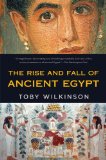Summary | Excerpt | Reading Guide | Reviews | Beyond the book | Read-Alikes | Genres & Themes | Author Bio

While reading this novel, I was taken aback at how little I knew about Aristotle's early life. Annabel Lyon fills in this gap by fleshing out the few facts we have, showing his childhood and education in flashbacks, including his first meeting with Phillip (later to become king of Macedon). This past friendship explains why Phillip sends for Aristotle - at the time a struggling philosopher eager to return to Athens and Plato's Academy - to tutor Phillip's son Alexander. For the first time, I really got a sense of Aristotle as a human being and not just an immense intellect driven by ambitions, resentments, and sometimes contradictory impulses.
Lyon gives The Golden Mean a sense of immediacy by using contemporary style and language. Except for certain ceremonial occasions, the characters speak in informal, present-day English. In fact, the language can get rather explicit at times, with swear words and sexual references casually tossed about. There are also a handful of graphic scenes, involving the aftermath of war and physically intimate moments between Aristotle and his wife. I wasn't expecting to find such earthiness in a historical novel featuring an ancient philosopher, and it took some getting used to. But in the context of the ancient culture Lyon depicts, such scenes actually feel quite natural. I was impressed at how the language helps to make such a foreign time and place seem so familiar; there were times I forgot it was set during an ancient period.
I found myself rooting for Alexander, as his situation is the most complicated of all the characters. While he may be next in line to inherit the throne, he's also a teenage boy, subject to mood swings and acts of rebellion. At times he's truly frightening, but he's also a typical teenager, making his fellow students laugh at fart jokes. He has to be exceedingly careful in everything he does. For instance, he truly wants to learn from Aristotle, but has to appear bored while in front of the other pupils, for fear that they'll resent his enthusiasm for knowledge. He loves his mother, Olympia, but she's not in favor with Phillip or his other wives, so he has to limit how much affection he shows her, in case his father starts to suspect his loyalties. Lyon shows Alexander as a boy forced to grow up far too quickly, and take up adult responsibilities in order to survive.
 |
| Alexander fighting the Persian king Darius III. From the Alexander Mosaic, Pompeii, now located in the Naples National Archaeological Museum (click for full mosaic) |
Aristotle genuinely cares for Alexander, and enjoys teaching the boy, even as he struggles with the difficulties of his own position. He's an exile, caught between the political and military struggles of Greece and Macedon. The Greeks think he's too barbarian and too friendly with Phillip to even enter Plato's Academy, let alone run it, while the Macedonians taunt him for being too Greek and intellectual*. Even his friendship with Phillip doesn't offer much protection, as the king is usually away fighting battles and negotiating treaties. I was fascinated by the way these two speak to each other, friendly and familiar to a point, but mindful that one of them is a king and the other his subject.
Readers of historical fiction will enjoy The Golden Mean, drawn in by the prospect of learning more about the early lives of Aristotle and Alexander. Even readers not interested in ancient history will find the richly complex characters and situations engaging, as the story could almost take place in the present. All necessary background information is given in the novel, so readers do not need any prior knowledge. The novel drops hints about the greatness these two historical figures will each achieve, but Lyon captures them before that moment, while they're still forming, and while their successes are far from assured.
*Aristotle was born in Stageira, an ancient Greek city in the north of modern day Greece. His father was personal physician to King Amyntas of Macedon, Philip II's father. At about the age of eighteen Aristotle went to Athens to continue his education at Plato's Academy - thus the Macedonians likely considered him Greek, while the Athenians would have considered him a barbarian for not being from Athens (keep in mind that Greece at the time was a loose composite of city-states with frequently changing boundaries, the concept of formalized country boundaries did not appear in most of Europe until the 15th century).
![]() This review was originally published in The BookBrowse Review in October 2010, and has been updated for the
October 2011 edition.
Click here to go to this issue.
This review was originally published in The BookBrowse Review in October 2010, and has been updated for the
October 2011 edition.
Click here to go to this issue.

If you liked The Golden Mean, try these:

The Rise and Fall of Ancient Egypt
by Toby Wilkinson
Published 2013
In this landmark work, one of the world’s most renowned Egyptologists tells the epic story of this great civilization, from its birth as the first nation-state to its final absorption into the Roman Empire—three thousand years of wild drama, bold spectacle, and unforgettable characters.

by Madeline Miller
Published 2012
Built on the groundwork of the Iliad, Madeline Miller's page-turning, profoundly moving, and blisteringly paced retelling of the epic Trojan War marks the launch of a dazzling career.
Your guide toexceptional books
BookBrowse seeks out and recommends the best in contemporary fiction and nonfiction—books that not only engage and entertain but also deepen our understanding of ourselves and the world around us.